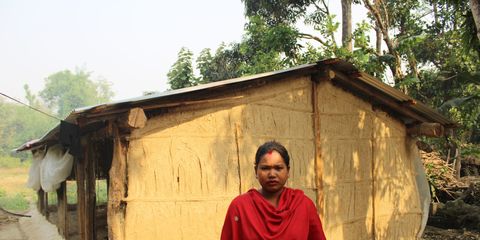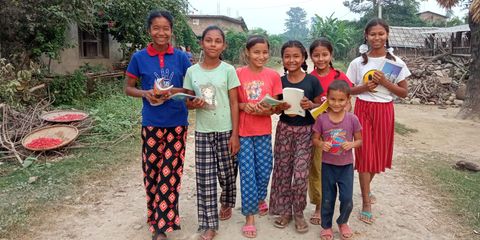Gyan Bahadur breaking period stigma
This Father’s Day, we honour fathers like Gyan Bahadur. Now he buys sanitary pads, talks openly about menstrual hygiene, and encourages his community to rethink old norms. Small steps, big impact.
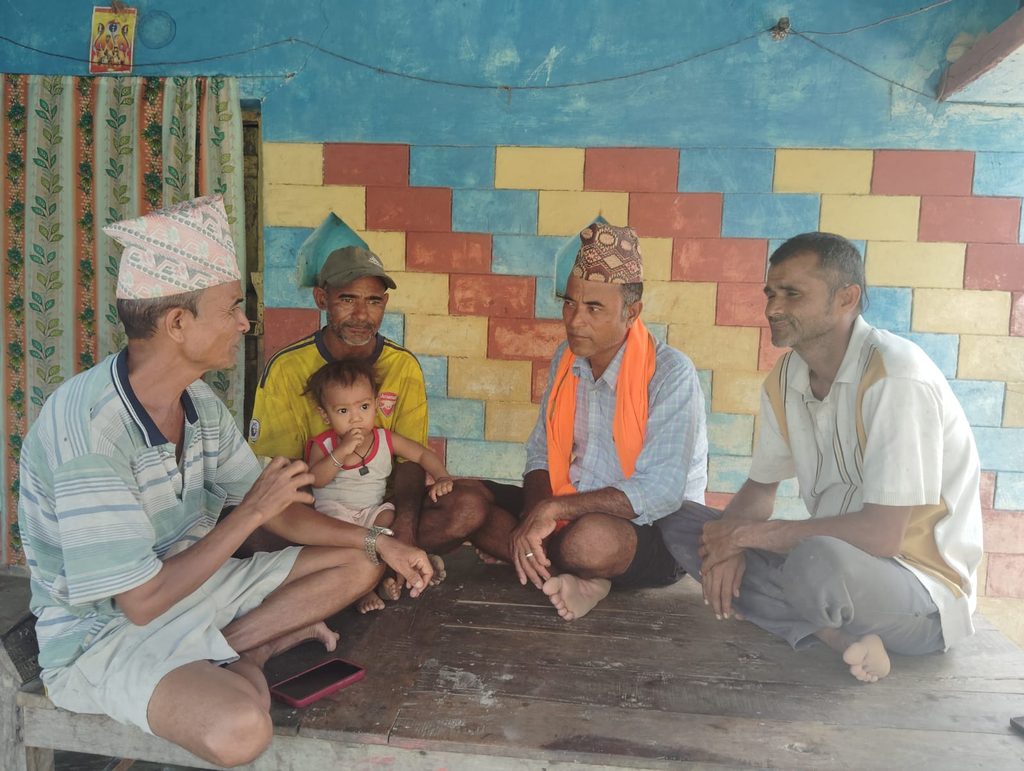
“I never openly discussed menstrual hygiene with my family due to hesitation. I thought it was a private matter for the women in my household,” says Gyan Bahadur, a 56-year-old from Bardiya.
In Gyan Bahadur’s household, strict traditional beliefs governed women’s lives during menstruation. Women were not allowed to enter the kitchen but were still expected to carry out outdoor chores. As the head of a family of 11, Gyan Bahadur managed the household finances and took care of the family’s overall needs, but he paid little attention to the challenges faced by the women in his family, particularly during menstruation.
He adds, “I never discussed menstrual health or sexual and reproductive health issues with my wife or even with my male friends. It felt like something we shouldn’t talk about, a private matter that only women needed to worry about. I didn’t realise back then that it was not just a woman’s issue but something all of us should be concerned with. Joining the father’s group opened my eyes to the importance of these discussions, and now I know it’s my responsibility to support the women in my life.”
A transformative experience
Gyan Bahadur’s perspective changed when he attended an orientation on Sexual and Reproductive Health and Rights (SRHR), with a focus on menstrual hygiene. The sessions were organised as part of the Girls Standing Strong project.
“Before joining the father group meeting, I never supported my female family members during menstruation,” Gyan Bahadur admits. “But the sessions inspired me. Now, I always support them, sometimes buying sanitary pads myself, and I don’t hesitate to talk about this natural process with my family and friends. I’ve also started working to minimise harmful traditional practices in my home and community.”
He adds, “I was raised with certain beliefs that men should not interfere in women’s issues. After participating in the father’s group, I see that these traditions must be questioned. Men have a crucial role in challenging harmful practices and ensuring gender equality in our homes and communities.”
Engagement in the family
“The SRHR sessions taught me the importance of talking openly with my wife and daughter about their health, something I never did before. We need to encourage these conversations so that women and girls feel supported and understood.”
The changes in Gyan Bahadur’s attitude have been evident to his family. His daughter-in-law shares, “Before, my father-in-law never supported us during our menstrual periods. But after attending the father group sessions, he completely changed. He taught us about menstrual hygiene and shared what he learned. Sometimes he even buys sanitary pads during emergencies. Nowadays, he openly discusses women’s health and SRHR issues with our family, friends, and the community.”
Gyan Bahadur has been part of the Girls Standing Strong project for almost a year, where he attended multiple discussion sessions on menstrual health and hygiene. He expresses his gratitude to the project team for bringing these transformative activities to his area. He hopes similar initiatives will be implemented in all municipalities across Bardiya District to benefit more families and communities.
He shares, “I realised that empathy and active participation are key to creating a healthier family environment. Whether it’s buying sanitary pads or offering emotional support, small actions make a big difference in promoting menstrual health and overall well-being.”
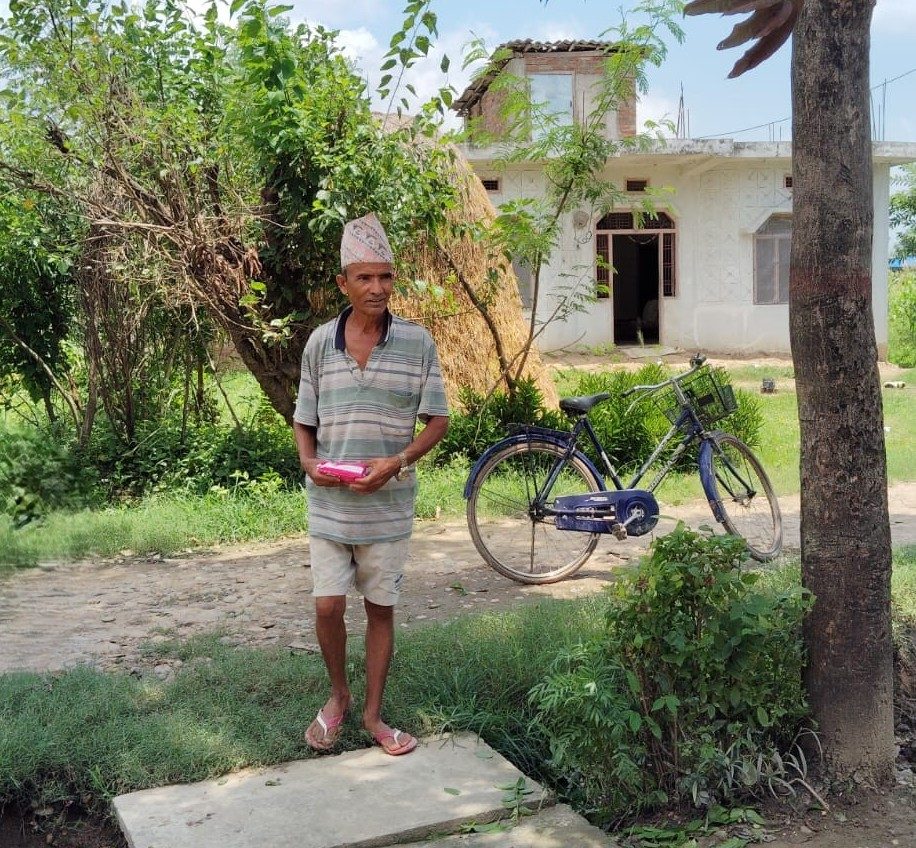
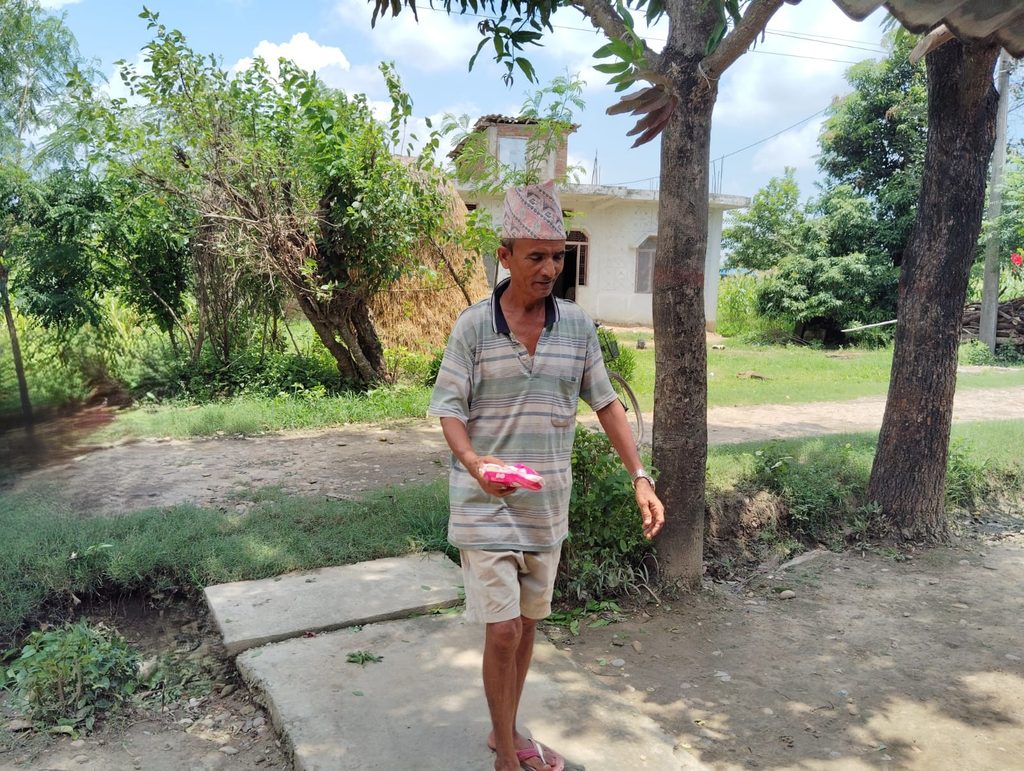
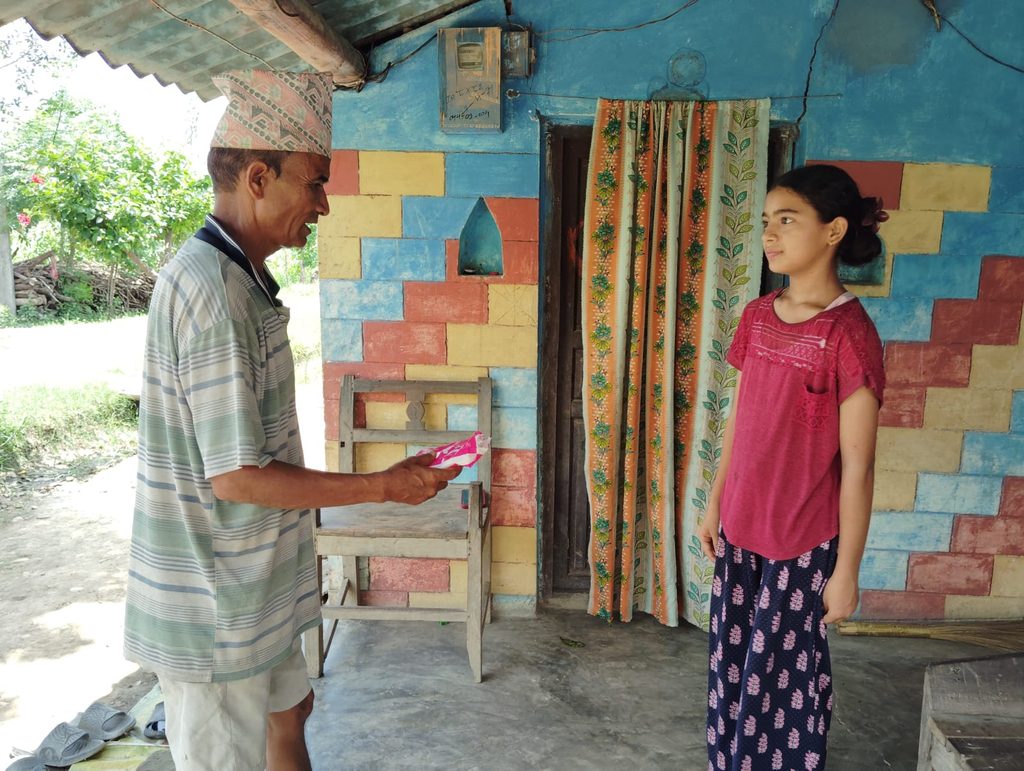
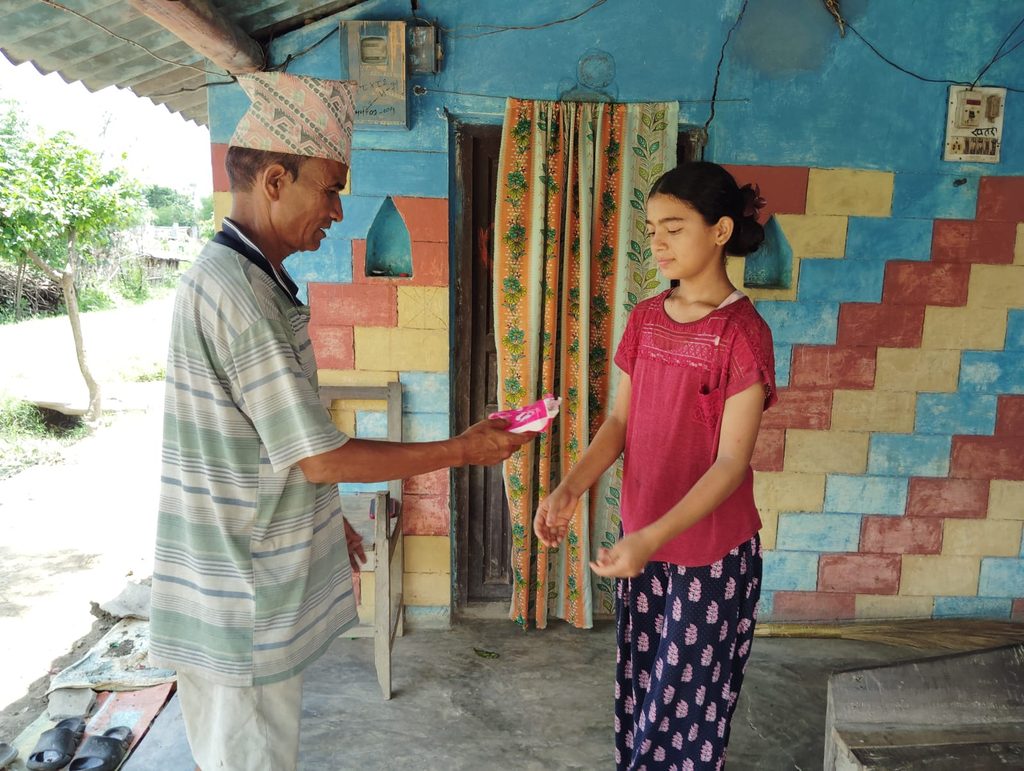
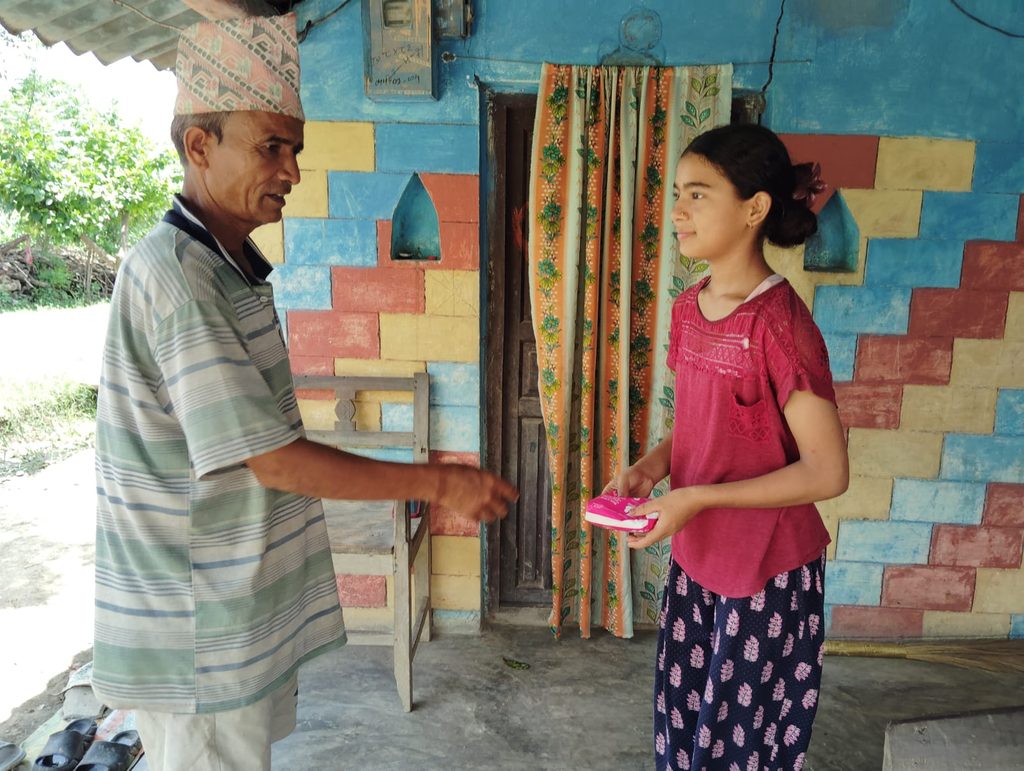
Father’s group and its positive impact
Father group meetings are designed to improve adolescents’ access to SRHR and reduce harmful socio-cultural norms surrounding menstrual health and hygiene. These sessions, attended by fathers of adolescents, focus on challenging discriminatory practices and encouraging open dialogue about women’s health.
Gyan Bahadur says, “Before joining the father’s group, I never realised how important it is for fathers and husbands to support their female family members’ sexual and reproductive health and rights. Now, I understand that equal participation is crucial. As men, we must not only care for our families but also stand up for their rights, especially when it comes to their health. It is our responsibility to break the silence and support women in every way we can.”
Implemented through the Girls Standing Strong Project, the sessions are conducted by trained facilitators over three focused modules. Fathers like Gyan Bahadur have emerged as champions of change, sharing their knowledge and working to eliminate harmful practices in their communities.
The engagement of fathers has had a significant impact at both the household and community levels. Fathers are now taking on active roles in promoting menstrual hygiene, advocating for SRHR, and challenging gender stereotypes. By empowering men to become allies in the fight for gender equality, Plan International Nepal is creating a ripple effect that benefits families, communities, and future generations.

